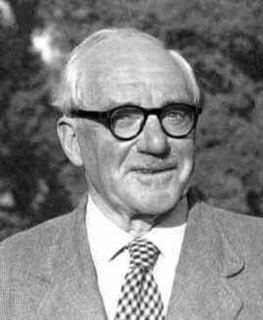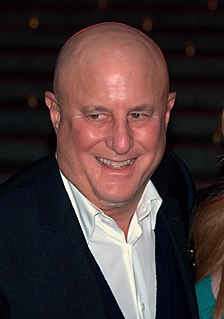A Quote by John Edensor Littlewood
In presenting a mathematical argument the great thing is to give the educated reader the chance to catch on at once to the momentary point and take details for granted: two trivialities omitted can add up to an impasse). The unpractised writer, even after the dawn of a conscience, gives him no such chance; before he can spot the point he has to tease his way through a maze of symbols of which not the tiniest suffix can be skipped.
Related Quotes
In a universe governed by God there are no chance events. Indeed, there is no such thing as chance. Chance does not exist. It is merely a word we use to describe mathematical possibilities. But chance itself has no power because it has no being. Chance is not an entity that can influence reality. Chance is not a thing. It is nothing.
I end with a word on the new symbols which I have employed. Most writers on logic strongly object to all symbols. ... I should advise the reader not to make up his mind on this point until he has well weighed two facts which nobody disputes, both separately and in connexion. First, logic is the only science which has made no progress since the revival of letters; secondly, logic is the only science which has produced no growth of symbols.
It is easier for the reader to judge, by a thousand times, than for the writer to invent. The writer must summon his Idea out of nowhere, and his characters out of nothing, and catch words as they fly, and nail them to the page. The reader has something to go by and somewhere to start from, given to him freely and with great generosity by the writer. And still the reader feels free to find fault.
The analytical writer observes the reader as he is; accordingly, he makes his calculation, sets his machine to make the appropriate effect on him. The synthetic writer constructs and creates his own reader; he does not imagine him as resting and dead, but lively and advancing toward him. He makes that which he had invented gradually take shape before the reader's eyes, or he tempts him to do the inventing for himself. He does not want to make a particular effect on him, but rather enters into a solemn relationship of innermost symphilosophy or sympoetry.
I'd once been fascinated by his legend - all the stories I'd heard before I met him. Now I can feel that same sense of fascination returning. I picture his face, so beautiful even after pain and torture and grief, his blue eyes bright and sincere. I'm ashamed to admit that I enjoyed my brief time with him in his prison cell. His voice can make me forget about all the details running through my mind, bringing with it emotions of desire, or fear instead, sometimes even anger, but always triggering something. Something that wasn't there before.
The book which the reader now holds in his hands, from one end to the other, as a whole and in its details, whatever gaps, exceptions, or weaknesses it may contain, treats of the advance from evil to good, from injustice to justice, from falsity to truth, from darkness to daylight, from blind appetite to conscience, from decay to life, from bestiality to duty, from Hell to Heaven, from limbo to God. Matter itself is the starting-point, and the point of arrival is the soul. Hydra at the beginning, an angel at the end.
Well with just this business, this whole acting thing, it's so competitive and there's like such a small chance of making it. I'm very lucky that I got to be on this big show, and I just think if you push past that 99 percent who give up at a point, you will have a chance at making it and going somewhere.
I take a few breaths to calm myself, step back, and lift Buttercup by the scruff of the neck. "I should've drowned you when I had the chance." His ears flatten and he raises a paw. I hiss before he gets a chance, which seems to annoy him a little, since he considers hissing his own personal sound of contempt.
I would also argue that there is a good chance that an outline will help you stave off any onslaught of writer's block. Let me advise you right up front that I am not a big believer in writer's block. I think writer's block is God's way of telling you one of two things - that you failed to think your material through sufficiently before you started writing, or that you need a day or two off with your family and friends.






































